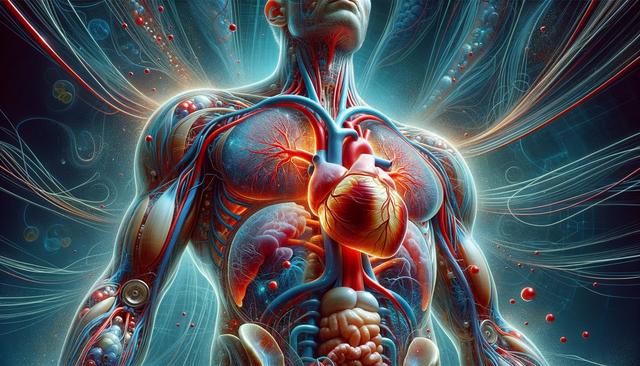What is Heart Failure and Why Early Detection Matters
Heart failure is a chronic condition where the heart is unable to pump blood effectively to meet the body’s needs. It does not mean the heart has stopped working, but rather, it is functioning less efficiently. Early detection of heart failure can lead to better management and can often slow the progression of the disease. Recognizing the initial signs is crucial for initiating lifestyle changes and medical interventions that can enhance quality of life.
Often, the early symptoms are subtle and can be mistaken for general fatigue or aging. However, being aware of these signs can make a significant difference. Many cases of heart failure develop gradually, and symptoms may not be immediately alarming. This makes it even more important to monitor any persistent changes in physical health and energy levels.
Shortness of Breath: A Common Early Signal
One of the first noticeable symptoms of heart failure is shortness of breath, especially during physical activity or while lying down. This happens because fluid can accumulate in the lungs when the heart’s pumping function weakens. People often describe it as feeling winded easily, even with minimal exertion.
Shortness of breath can present in several ways:
- During routine activities such as walking or climbing stairs
- While lying flat, which may require propping up with pillows to sleep comfortably
- Waking up at night gasping for air, a condition known as paroxysmal nocturnal dyspnea
This symptom should not be dismissed, particularly if it is new or progressively worsening. Consulting a healthcare provider for an assessment is advisable when such signs emerge.
Fatigue and Weakness: Subtle Yet Telling
Persistent fatigue and muscle weakness are also early indicators of heart failure. As the heart struggles to pump blood efficiently, less oxygen reaches the muscles and tissues, resulting in a constant feeling of tiredness. Individuals may find it difficult to complete tasks that were once routine, such as household chores or walking short distances.
Common experiences include:
- Feeling exhausted even after a full night’s sleep
- Decreased stamina during exercise or daily activities
- A sense of heaviness or sluggishness, especially in the legs
These symptoms often occur alongside others like breathlessness and should be evaluated, especially if they persist over several days or weeks.
Swelling and Weight Gain: Signs of Fluid Retention
Heart failure can lead to fluid buildup in the body, causing swelling in the ankles, legs, abdomen, or even the hands. This is known as edema and is a result of the kidneys receiving less blood, prompting the body to retain fluid and salt. Sudden weight gain due to this fluid retention can also be an early warning sign.
Warning signs of fluid retention may include:
- Noticeable swelling in the lower extremities
- Rapid, unexplained weight gain (more than 2-3 pounds in a day or 5 pounds in a week)
- Clothes or shoes feeling tighter than usual
Monitoring daily weight and physical changes can help individuals detect fluid retention early. Keeping a log and discussing it with a healthcare provider can support timely intervention.
Persistent Coughing and Wheezing
Another symptom that might appear in the early stages is a persistent cough or wheezing. This is often due to fluid buildup in the lungs, a condition known as pulmonary congestion. The cough may be dry or produce white or pink blood-tinged mucus, especially when lying down.
These respiratory symptoms can be mistaken for other conditions such as asthma or bronchitis, but if they occur alongside other signs of heart failure, they warrant medical attention. Other related observations include:
- Difficulty breathing during the night
- A feeling of tightness in the chest
- Chronic coughing that does not respond to typical cold or allergy treatments
Early recognition of these symptoms can help in distinguishing heart-related issues from other respiratory conditions.
When to Seek Medical Advice
Understanding when to seek medical assistance is vital. If any of the symptoms mentioned—shortness of breath, persistent fatigue, swelling, or coughing—are new, worsening, or interfering with daily life, it is important to consult a healthcare professional. Early diagnosis allows for more effective treatment options and can prevent complications.
Some other associated symptoms to watch for include:
- Increased heart rate or palpitations
- Confusion or impaired thinking
- Reduced appetite or nausea
No single symptom confirms heart failure, but a combination of signs that persist over time should not be ignored. Healthcare providers may use a combination of physical exams, imaging, and blood tests to make an accurate diagnosis and recommend appropriate care strategies.
Conclusion: Staying Informed and Proactive
Heart failure is a serious condition, but with early detection and appropriate management, many individuals can maintain a fulfilling life. Recognizing the initial symptoms—such as breathlessness, fatigue, swelling, and persistent coughing—can lead to early medical evaluation and timely intervention. Staying aware of these signals, maintaining a healthy lifestyle, and having regular check-ups can significantly improve overall heart health and long-term outcomes. If you or someone you care about is experiencing these symptoms, seeking medical guidance is a valuable first step toward treatment and improved well-being.


